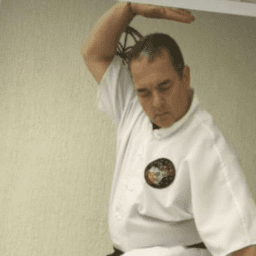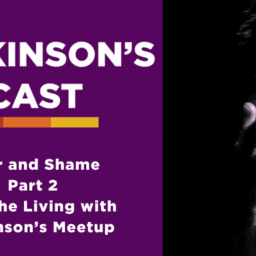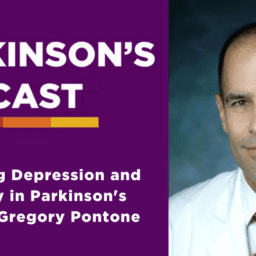A Parkinson’s diagnosis can bring with it a wide array of challenges. It is life-disrupting and can feel like the life you once knew and the one you dreamed about are gone forever. This can leave you feeling stressed, fearful, uncertain, and overwhelmed. In the book How to Live Well with Chronic Pain and Illness: A Mindful Guide, author Toni Bernhard addresses a broad range of topics and how the practices of mindfulness, equanimity, and self-compassion can make life as good and joyful as possible in the face of a diagnosis like Parkinson’s.
In this episode
During this session, Toni discussed what she’s learned about living with chronic pain and illness and how to live well with it at every turn.
To download the transcript, click here.
Note: This isn’t a perfect transcript, but it’s close.
Show Notes
- When you’re living with chronic pain or illness, you often hear from people who do not fully understand its effects that “you look great” or “I hope you get better soon.” Although these kinds of comments are said with good intentions, they can sometimes make you feel unseen or minimized to any outward symptoms
- With many illnesses, particularly those that are chronic and/or progressive, the way a person looks is not necessarily the way they feel
- Living with chronic illness can mean relationships and friendships change, and some may fade away. It can help to think about why some friends might shy away from the relationship and to realize the reasons are likely about them, not you
- When living with chronic pain and illness, a “not-to-do” list (with items such as, “Do not blame yourself for your condition”) may be as important as a “to-do” list
- Toni splits the experience of pain into three parts. One is the pain itself. Another is the emotional reaction to the pain, which can be anything from frustration to sadness to anger to compassion. The third is how we spin our story based on our reaction. An example is feeling pain, growing sad, and then thinking, “I am going to be in pain and unhappy forever. This is never going to stop.” Practicing mindfulness can help you be aware of these thoughts and bring your thoughts back to the present moment, not focused on the past or the future
- Mindfulness, Toni says, is showing “caring attention to the present moment.” Mindfulness means bringing your attention to the present while still caring for others if the need should arise
- One mindfulness exercise Toni practices is the three-breath technique. To do it, take three deep breaths in and out, focusing only on the sound and feeling of your breath
- If living with chronic pain or illness means you aren’t able to join loved ones for activities you would enjoy, it can cause intense, and often unwelcome, emotions. Toni suggests trying the practice of mudita, a Buddhist philosophy of being happy for others during their times of joy
Additional Resources
An interview with Toni Bernhard about her book How to Wake Up
Meditation, Mindfulness, and Parkinson’s
Mudita: The Buddhist Practice of Sympathetic Joy
A Primer On Pain And Parkinson’s
Webinar Recording: Pain and Parkinson’s with Dr. Janis Miyasaki
8 Ankle and Foot Stretches to Reduce Pain and Increase Flexibility in Parkinson’s
Live Well Today Webinar Series Presenting Partners*

*While the generous support of our sponsors makes our educational programs available,
their donations do not influence Davis Phinney Foundation content, perspective, or speaker selection.
Thanks for Listening!
To share your thoughts:
- Leave a note in the comment section below.
- Ask a question by emailing us here.
- Share this show on Facebook.
To help out the show:
- Leave an honest review on iTunes. Your ratings and reviews really help, and we read each one.
- Subscribe on iTunes.
Listen & Subscribe
Apple Podcasts | Stitcher
*The Third Season of the Parkinson’s Podcast is made possible through generous support in honor of Dr. Margaret Hilgartner.

















